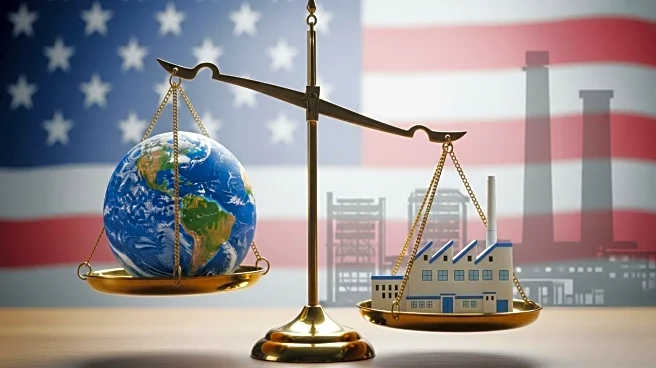What's Happening?
The article discusses the resurgence of protectionism and national self-sufficiency, known as autarky, in U.S. trade policy under President Trump. It highlights the influence of historical figures like Friedrich List, who advocated for high tariffs to protect emerging industries. The narrative connects these ideas to contemporary policies, including Trump's tariff regime, which has become a permanent feature of the global economy. The article also touches on the ideological shifts within the neoliberal movement, suggesting that autarky is not merely a mercantilist approach but a broader strategy involving national security and economic power.
Why It's Important?
The shift towards autarky and protectionism under President Trump has significant implications for U.S. industries and global trade relations. By prioritizing national self-sufficiency, the U.S. aims to reduce dependency on foreign supply chains, particularly from China, which is seen as a threat to national security. This approach could lead to increased domestic manufacturing and job creation but may also result in higher consumer prices and strained international relations. The emphasis on national security and economic power reflects a broader trend of economic nationalism that could reshape global trade dynamics.
What's Next?
The continuation of Trump's tariff regime suggests that protectionist policies will remain central to U.S. trade strategy. This could lead to further tensions with trading partners and potential retaliatory measures. The focus on national self-sufficiency may drive policy changes in sectors like defense and manufacturing, with increased government involvement. Stakeholders, including businesses and political leaders, will likely engage in debates over the balance between economic nationalism and global cooperation.
Beyond the Headlines
The rise of autarky raises ethical and cultural questions about the balance between national interests and global responsibilities. It challenges the principles of free trade and international cooperation, potentially leading to isolationist policies. The historical parallels with past economic nationalism highlight the risks of prioritizing power over wealth, which could result in economic inefficiencies and social inequalities.











